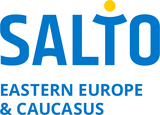Russia
| Full country name | Russian Federation |
| Capital | Moscow |
|
Area |
17,098,246 km2 |
|
Administrative divisions |
46 oblasts, 22 republics, 9 krais, 4 autonomous okrugs, 3 federal cities (Moscow, Saint Petersburg, and Sevastopol) and1 autonomous oblast |
|
Population |
143,759,445 (excluding Crimea, 2021 census) |
| Ethnic groups | 80.9% Russian 3.9% Tatar 1.4% Ukrainian 1.1% Bashkir 1.0% Chuvash 1.0% Chechen 10.7% Other |
|
Religion |
73% Christianity —70% Russian Orthodoxy —3% Other Christian 15% No religion 10% Islam 2% Other |
|
Language |
Russian |
|
Currency |
Russian ruble (₽) (RUB) |
|
Government type |
Federal semi-presidential constitutional republic |
|
President |
Vladimir Putin |
|
Human Development Index |
0.824 | 52nd |
| View Full Source | Wikipedia |
Russia, country that stretches over a vast expanse of eastern Europe and northern Asia. Once the preeminent republic of the Union of Soviet Socialist Republics (U.S.S.R.; commonly known as the Soviet Union), Russia became an independent country after the dissolution of the Soviet Union in December 1991.
Russia is a land of superlatives. By far the world’s largest country, it covers nearly twice the territory of Canada, the second largest. It extends across the whole of northern Asia and the eastern third of Europe, spanning 11 time zones and incorporating a great range of environments and landforms, from deserts to semiarid steppes to deep forests and Arctic tundra. Russia contains Europe’s longest river, the Volga, and its largest lake, Ladoga. Russia also is home to the world’s deepest lake, Baikal, and the country recorded the world’s lowest temperature outside the North and South poles.
Source : Britannica
 Flag of Russia
Flag of Russia Map of Russia
Map of Russia
